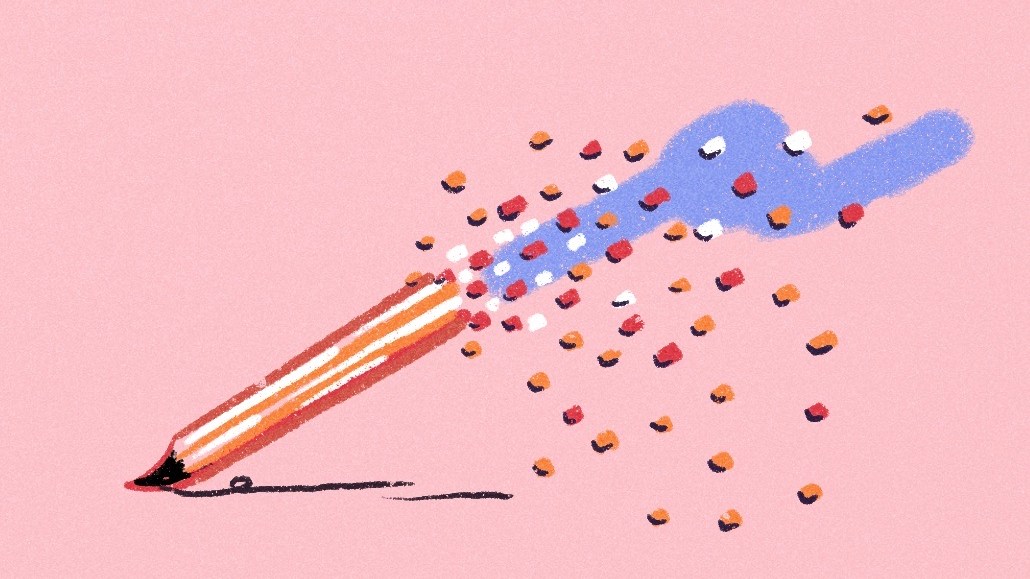Getty Images gets into the generative AI race with its own image platform

After investing in one generative AI startup and suing another, Getty Images has entered the AI race with its own AI image generator. The platform, announced on Monday, is trained on the company’s vast trove of images and developed in partnership with the AI computing powerhouse Nvidia.
Along with letting customers create AI-generated images through its website, Getty Images is also offering the tools through an API. It’s also developing a way for brand clients to incorporate their own IP and custom-fit the AI model, which will begin testing later this year.
“There’s technology for technology’s sake, there’s break things and move fast and ignore other people’s rights — and this doesn’t do [any of] that,” Getty Images CEO Craig Peters told Digiday. “It presents a real meaningful, high-quality solution to customers, which is what they’ve been asking for.”
Similar to competitors like Shutterstock and Adobe, Getty Images offers full indemnification for commercial use of AI-generated images. However, unlike some others, Getty’s AI model is trained on only its own licensed content — a selling point for anyone worried about the range of copyright concerns that plague some other AI platforms.
Customers want to embrace generative AI without having to “absorb a massive amount of IP risk in doing that,” Peters said. He added that the plan isn’t to replace human contributors, but rather to “index on creativity” with “another tool in the creator’s toolbox.”
To showcase its capabilities, Getty Images created a sizzle reel with surreal examples like a pink cactus in the desert, a giant teddy bear on a downtown street, a field of blue flowers and a dog wearing a VR headset. Others are more photorealistic: A man staring out a plane window, skiers in a snowy forest, a bowl of strawberries and an aerial view of a mountaintop.
To avoid any problems with deepfakes or other problematic AI-generated images, Getty trained the visuals only on creative images in its library rather than its editorial content. This approach lets Getty rely on more than just back-end safeguards where loopholes might still allow users to trick an AI with prompts. As a result, Peters said the AI model “does not know who Joe Biden is, it does not know who the Pope is, it does not know who [Ukrainian President Volodymyr] Zelensky is.
“So we don’t have to put controls around it because if you ask it to do that, it can’t produce,” Peters continued. “Fundamentally, it’s not about safeguards, it’s about not training on everybody’s corpus of imagery into the internet, which has secondary items – which the people that released that technology didn’t consider when they did.”
Suing, funding and now joining the competition
Getty Images joins a growing number image platforms to offer generative AI. Among those are longtime stock image providers like Shutterstock and Adobe along with newer players like OpenAI, Midjourney and Stability AI. And just last week, OpenAI announced the upcoming rollout of DALL-E 3, which already powers platforms like Bing Chat and Shutterstock.
Content from Getty Images has already been used by AI image platforms — both with and without its permission. Earlier this year, Getty Images sued the British startup Stability AI, accusing it of using 12 million images to train its AI image generator without Getty’s permission. However, Getty Images has given permission to the Israeli startup Bria AI and also invested $2 million in the company as a minority investor. (Bria’s foundation models trained on Getty Images and other licensed content debuted earlier this month.)
Marketers have been itching to get access to AI images that are copyright friendly and available for commercial use since the gen AI hype began. Meanwhile, other startups already see burgeoning ways to add AI tools beyond just image-generation. Wayne St. Amand, COO of Vizit — a startup that uses intuitive AI to analyze images for marketing and e-commerce companies — praised Getty Images for its copyright-friendly platform, but added that it’s still missing a way to help marketers know which images to create for any particular audience.
“You’re depending on a creative person who probably has very good sense subjectively to know what a good image looks like,” Amand said. “But it doesn’t have the ability to do what AI brings to the table — to do massive trend analyses of huge data sets to tell you that audience X is really going to prefer an image with these traits [or] these characteristics in it.”
More in Media

Digiday+ Research: Dow Jones, Business Insider and other publishers on AI-driven search
This report explores how publishers are navigating search as AI reshapes how people access information and how publishers monetize content.

In Graphic Detail: AI licensing deals, protection measures aren’t slowing web scraping
AI bots are increasingly mining publisher content, with new data showing publishers are losing the traffic battle even as demand grows.

In Graphic Detail: The scale of the challenge facing publishers, politicians eager to damage Google’s adland dominance
Last year was a blowout ad revenue year for Google, despite challenges from several quarters.







